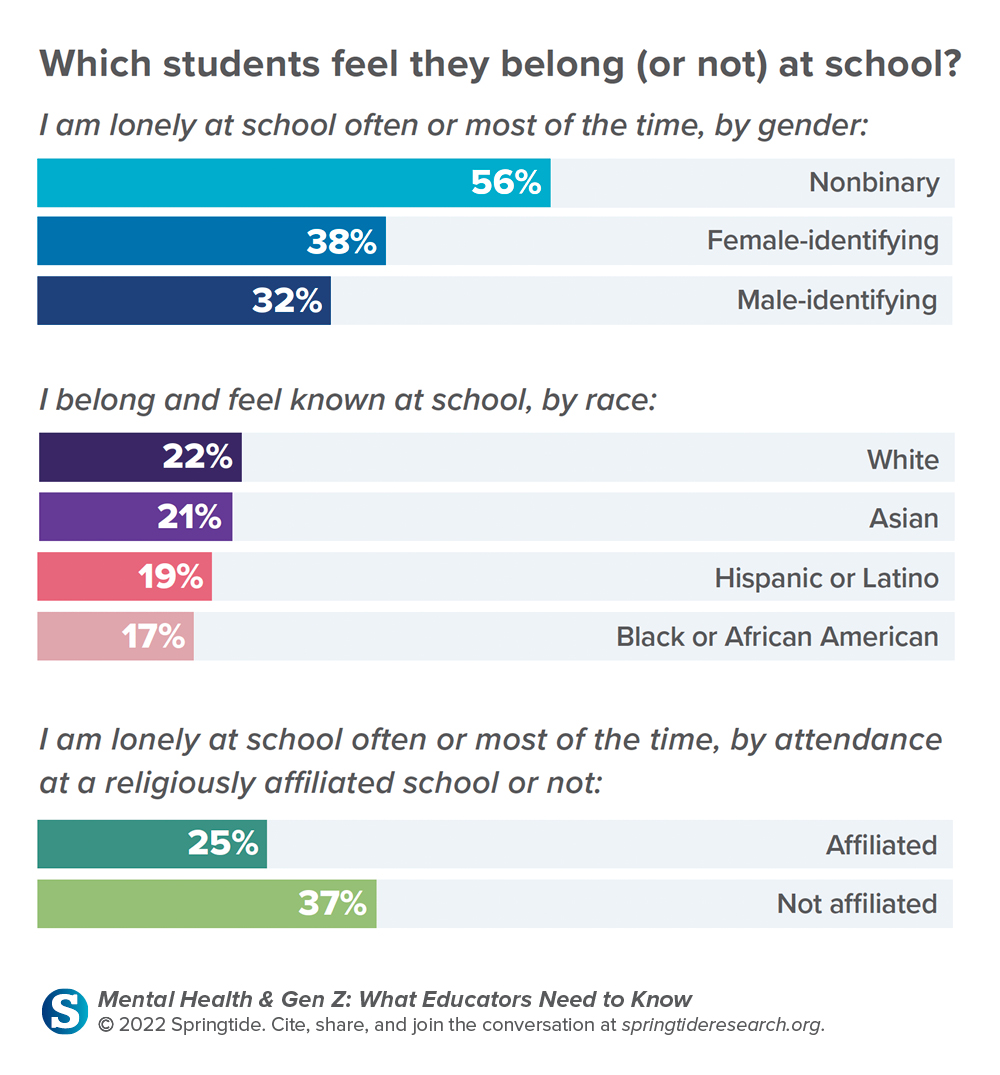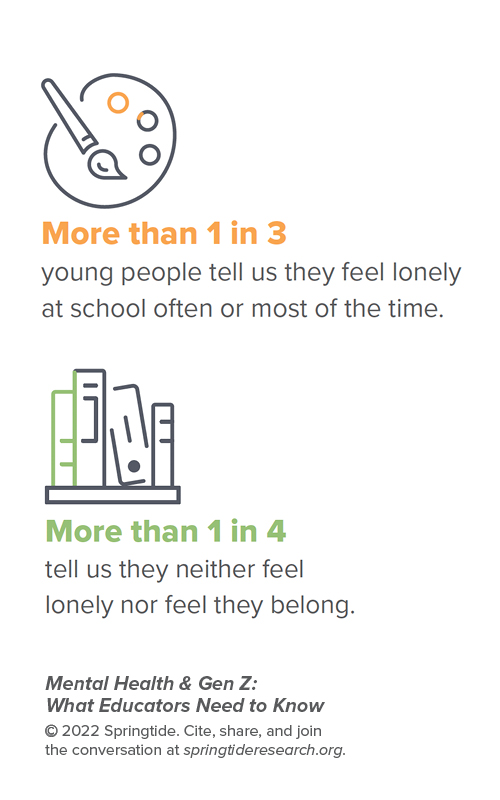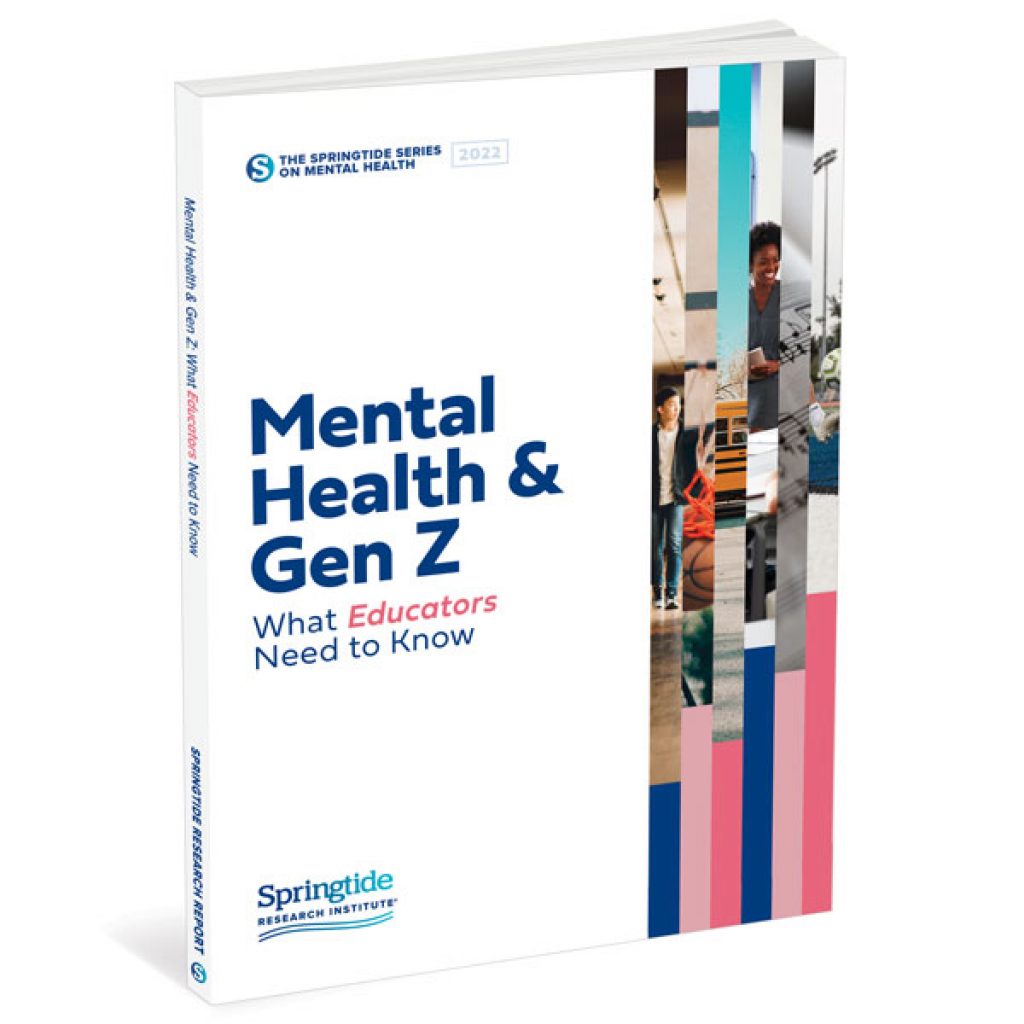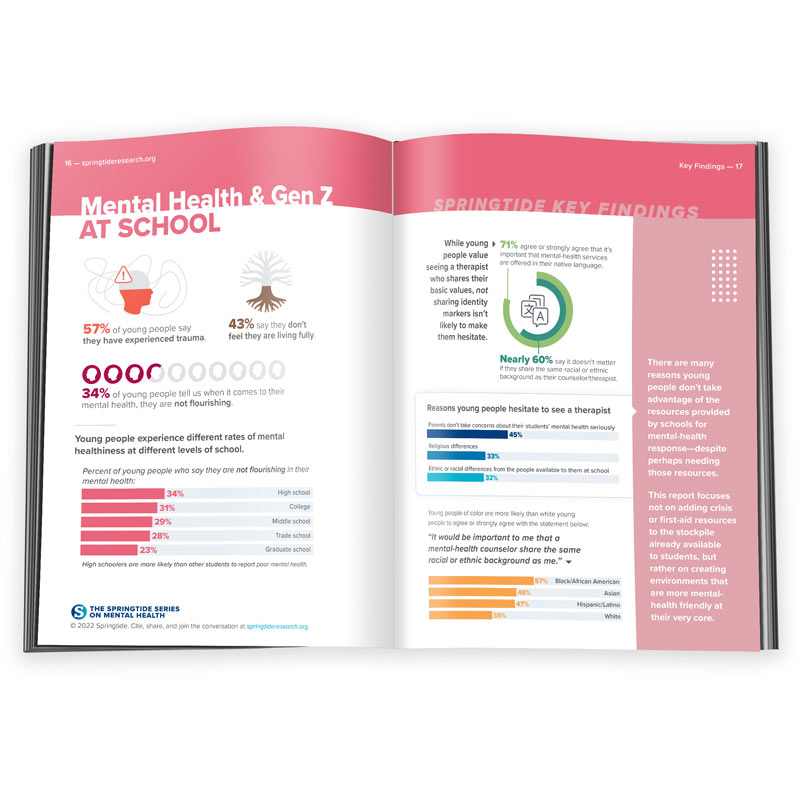Loneliness: Three Ways Educators Can Support Students
May is Mental Health Awareness Month, and we’ll be sharing tips from our insights from young people on mental health. For our report Mental Health and Gen Z: What Educators Need to Know, more than 4,000 young people answered survey questions about mental health in educational settings. In addition, 80 young people participated in interviews about the same theme.
Schools aren’t just a place of learning for young people – they’re also sources of community, connection and belonging. Yet, our data show that more than one in three young people said they feel lonely at school often or most of the time. More than half of nonbinary young people said they feel lonely at school often or most of the time, followed by 38 percent of females and 32 percent of males. Young people of color are less likely to feel they belong and are known at school than white young people, though no young people—of any race or ethnicity—said they belong at school at high rates.


So what can educators do to help young people feel less lonely?
Commit to knowing the names of the young people in your class or school. When you learn a young person’s name, confirm that you are using their expressed pronouns and proper pronunciation. Memorize their name and use it three times in conversation soon after learning it, and again in every passing or gathering.
Welcome any outliers into the fold. Consider students who are likely to not feel they are a part of the school community—transfer students, students who do not have resources to participate in extracurricular activities, students whose families cannot easily access communications provided by the school because of language barriers or technological gaps, students with external interests not recognized by the school, and so on. Assess what you do to help these students, and what you don’t do. How might you help them?
Be yourself. Young people want to know you, not just the institution you represent or the goals and purpose that drive that institution. Sharing personally about the things that matter to you—a friendship that means a lot, the type of music you love, your favorite thing to read, a question that you find yourself thinking about—adds human details to any interaction. When shared in ways that maintain appropriate and professional boundaries, these kinds of details can become the basis for trust—which is the foundation for receptivity to new ideas and perspectives.


Support the students in your life by using the data and insights from Mental Health & Gen Z: What Educators Need to Know.






